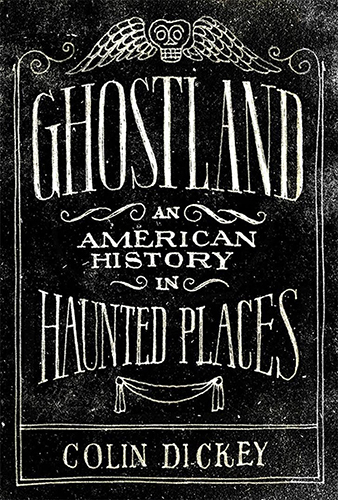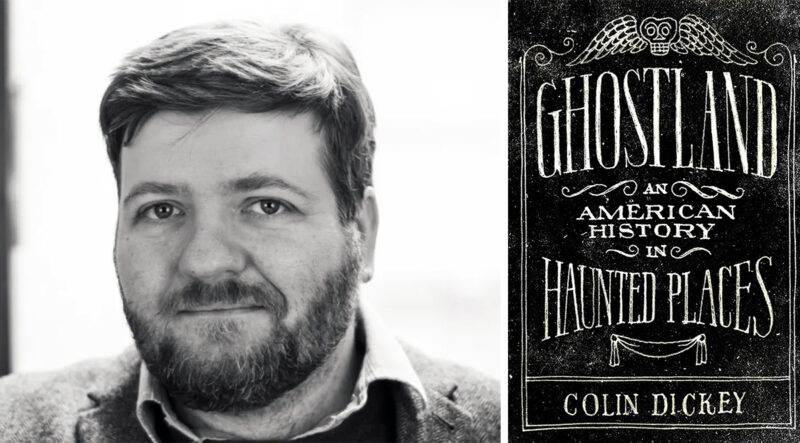When you tour along with Colin Dickey in his 2016 book, Ghostland: An American History in Haunted Places, you get the sense that most paranormal stories are a grift.

American History in
Haunted Places
by Colin Dickey
Penguin-Random
House
New York, 2016
5/5
There may be small details that can trace themselves back to real history, but the rest are part of a slick sideshow to help drive tourists to the darker aspects of humanity.
But even this dark tourism is watered down to avoid offending anyone’s sensibilities. The natural history of Savannah, Georgia, or Shockoe Bottom, Virginia is still an arm’s-length reach away from the abundant nonfiction.
Grim stories about hotels, bars, brothels, hospitals and plantations are just campfire fodder, blown up and repurposed like a bad game of broken telephone for the usual shits and giggles.
One of Dickey’s comments, which comes three-quarters into the book, underscores the overarching theme:
“For better or worse, the language of hauntings and ghosts is a convenient metaphor for a whole host of problems not connected to the supernatural, and the recourse to such vocabulary becomes a means to process or make sense of experiences that can otherwise seem overwhelming and mystifying,” he wrote while talking about the “curse” that afflicts Binghamton, N.Y. and the tragic hidden past of Savannah.
Reading Ghostland will introduce you to the impetus behind why some locations, in Hollywood, Salem, or even Moundsville, share their stories. And the excitement these brief brushes with mortality elicit in tourists.
It’s also a great evoker of the same feelings Canadians subvert when it comes to them hiding their interest in the preternatural.
Even though the content is evocative, Dickey’s book has a slower pace; a sort of surreal look at the history as though you were floating down a Georgian river with Spanish Moss hanging from old oaks. Don’t let that detour you from Dickey’s message though.
Academic as his approach may be, Dickey explores the paranormal in the best way I see fit, through a social anthropological lens.
That is probably why most scientists refuse to pick up the mantle of paranormal researcher, as the anecdotal evidence is the only portion that is shared, making it perfect for an anthropologist to explore the culture.
Oh, and I almost forgot, I love the subtle digs at the paranormal groups, in their t-shirts, littered throughout the book.
Ghostland is a book that deconstructs stories that have been allowed to ferment over time. It explores the politics, racism and discriminatory narratives that are neatly hidden away, and in some cases, like in the case of Savannah, tightly controlled. It’s a must-read to really understand why the paranormal is so prevalent in the American psyche, and how it is manipulated to keep the shivers coming.

